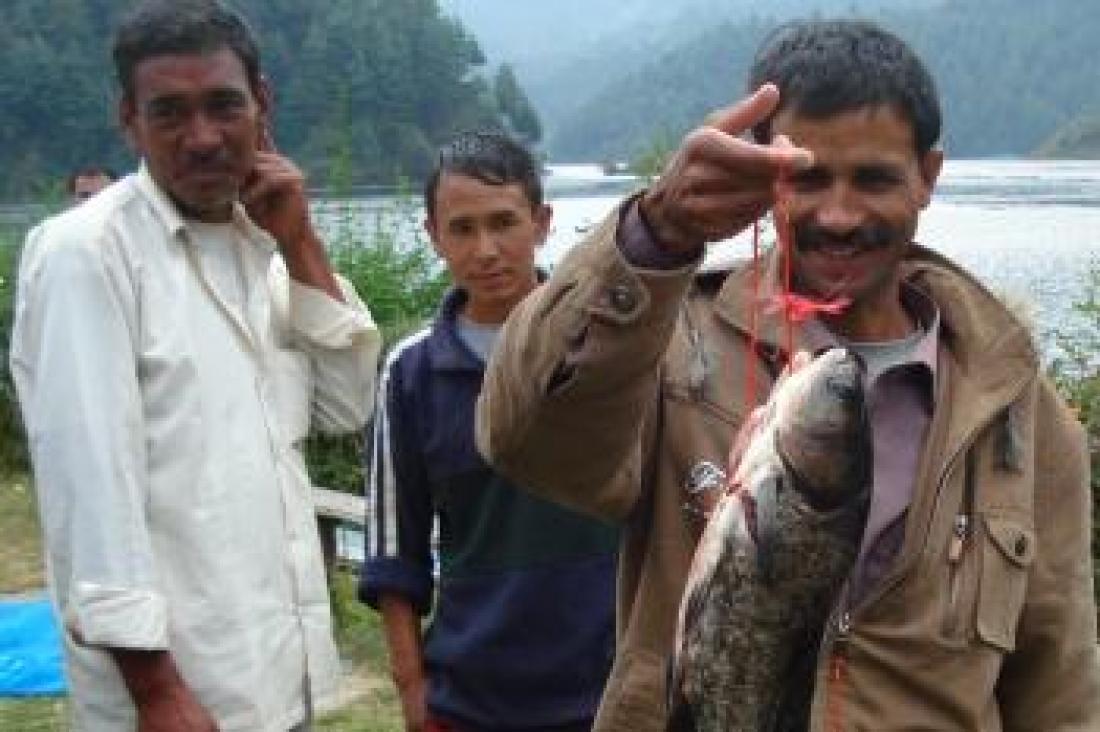More than 20 years after the introduction of aquaculture, fish farmers are thriving in Kulekhani, Nepal. Researchers supported by the International Development Research Centre guided the first families into this new venture when the construction of a hydro dam flooded the area in 1982.
For most of the 2,000 people who had to abandon their homes, fish farming turned misfortune into opportunity.
Researchers at the Nepal Agricultural Research Council found that the water was ideal for raising fish — mostly carp species — in large floating cages. The fish thrive on plankton readily available in the water.
The majority of the displaced families soon adopted fish farming as their new livelihood and prospered on the shores of the reservoir. There is also a smaller but equally successful catch fishery, boosted in part by “escapees” from the fish cages.
With new-found financial security, more families are able to provide education for their children, unlike many rural communities in Nepal. And the role of women in decision-making has been strengthened. Women take part alongside the men in all activities, from cleaning and repairing the fish cages to participating in meetings of farmers’' associations, attending workshops, and marketing the catch.
“There are some 1,100 to 1,200 fish cages and average production is estimated at 120 to 130 metric tonnes per year.”
—Tek Gurung, Director of Livestock and Fisheries Research, Nepal Agricultural Research Council
------------------------------------------------------------------
Other projects supported by IDRC include:
A clear path for small business growth
Tax cuts and a streamlined registration process are just some of the measures that reflect a new attitude toward small and medium enterprises in Egypt. Support from the International Development Research Centre and the Canadian International Development Agency, from 2000 to 2008, helped the Egyptian Ministry of Finance to pave the way for these improvements.
Brain trust puts Peru back on its feet
When top officials in Peru need expert advice, they know who to call. Recommendations made by CIES, the Economic and Social Research Consortium, have led to a healthy energy sector; modern customs, export, and labour laws; stronger consumer protection in banking; and higher unemployment insurance payments during the economic downturn.
African economists inspire growth, reduce poverty
Talk to an economist in Africa and there's a good chance you'll be talking to a graduate of the African Economic Research Consortium’s (AERC) training program. Founded in 1988 with support from the International Development Research Centre and other international donor agencies, AERC has trained over 1,800 students at the Master’s level and 300 PhDs. This critical mass of experts has helped to steer economies toward sustainable growth in sub-Saharan Africa.



